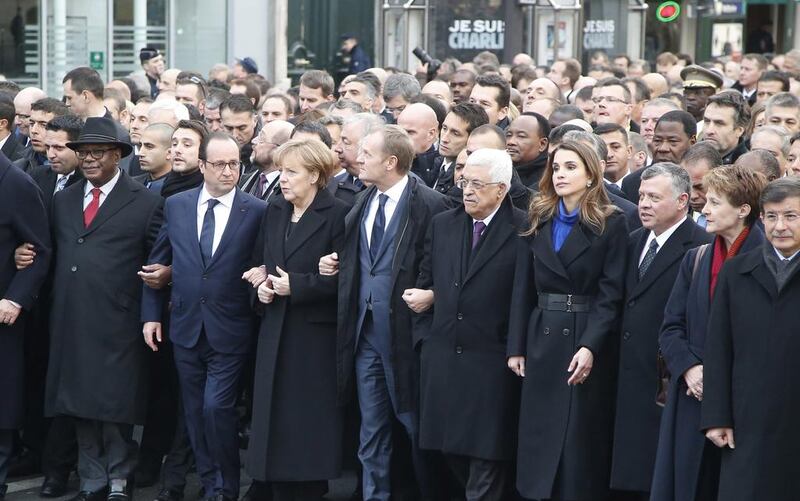After the massacre at the offices of the French magazine Charlie Hebdo, the latest issue of the magazine once again features a depiction of the Prophet Mohammed. This appears to be a deliberate provocation. The cartoonists seem to have gleaned the wrong lesson from the worldwide show of solidarity. The defence of free speech from around the globe was in support of the magazine’s right to decide what it wished to publish, it was not an endorsement of the magazine’s crude cartoons.
Perhaps it is too much to expect some cartoonists to be cognisant of all the aspects of their cartoons – after all, Charlie Hebdo is merely doing what it has always done. But other publications have either reprinted the offending (and offensive) cartoons or been placed under pressure to do so.
As a newspaper, we believe passionately in free speech. But free speech, as the US and UK newspapers who declined to republish the Charlie Hebdo cartoons of the Prophet Mohammed demonstrate, means the freedom to decide what to publish. It doesn’t mean publishing everything and anything.
European countries have their own laws and limits on freedom of expression, as we do. They have laws against denying the Holocaust. Laws against vilifying ethnic minorities. Laws against using swear words on television. Lines of what can and cannot be said criss-cross western Europe. Absolute free speech is a myth.
By depicting the Prophet Mohammed, the magazine has chosen offence over solidarity. They still appear to believe in an “us and them”, where the “them” are not the extremists who stalked Paris with guns, but the millions of French citizens who call Islam their faith. By depicting the Prophet Mohammed – and in a grossly offensive way, yet again – they are not separating the extremists from the rest of society. Rather, they are lumping all Muslims in with the extremists, saying, in essence, if you don’t accept your most sacred traditions being mocked, you are not one of us.
This is shortsighted, particularly at a time when a line needs to be drawn between the extremists and the rest of the world. Worse, it is an insult to those who marched, and to those, such as the Muslim policeman Ahmed Merabet, who died defending freedom of speech.





